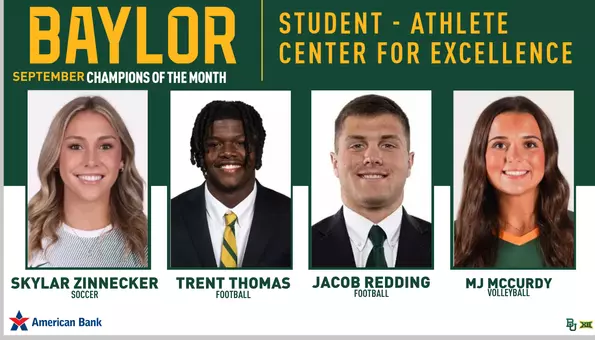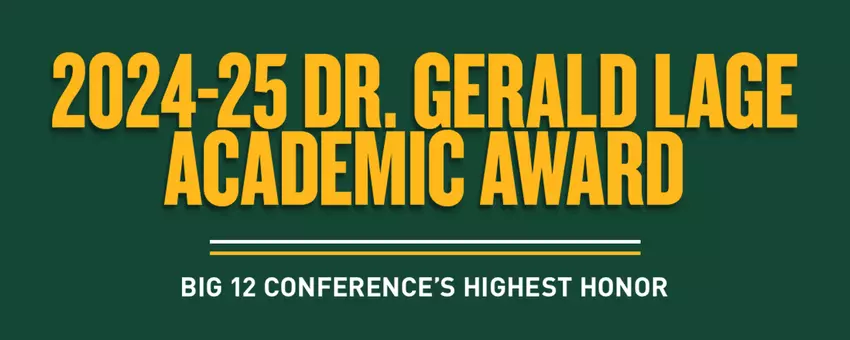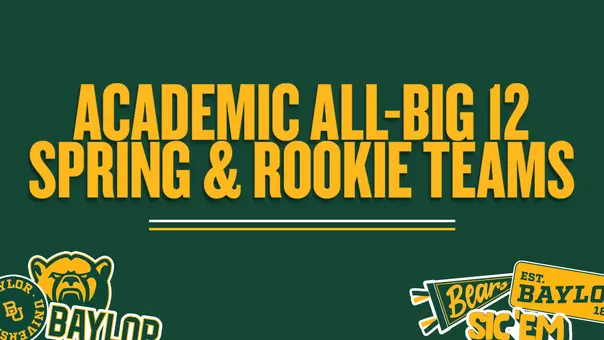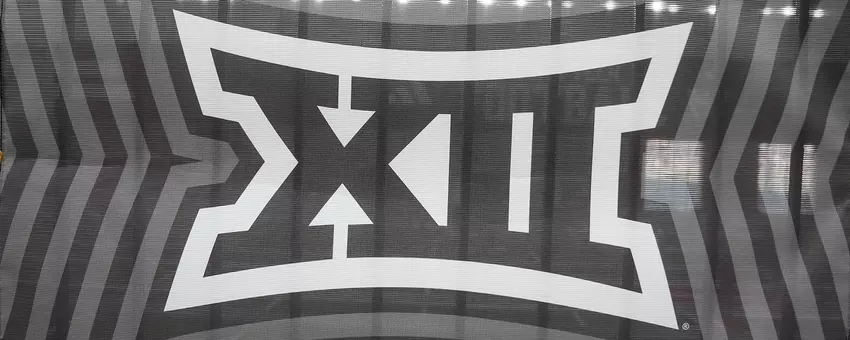
Baylor’s Unsung Heroes
2/6/2019 9:59:00 AM | Student-Athlete Center for Excellence, Preparing Champions for Life
Restructured Academic Services Team Making a Difference in Student-Athletes’ Lives.
By Jerry Hill
Baylor Bear Insider
Chances are, you won't ever see Chris Johnson or Emily DeRatt being interviewed by ESPN reporters, Aaron Tebo stomping up and down the sidelines or Deedee Brown-Campbell celebrating in the locker room. Same goes for Matt Davis, Christina Johnson, Divine Franklin and Paige Rohde.
Holed up in the academic wing of the Simpson Athletics and Academic Center, Baylor's academic coaches do their work behind the scenes, rarely seen or heard outside of their one-on-one sessions with the student-athletes in their assigned sports.
"You can have the vision for academic achievement, personal best and performing at a high level academically," said Marcus Sedberry, who's been in his role as Senior Associate AD for Student-Athlete Success since May 2017. "But, if you don't have the right people, it's all for naught.
"You have to have people who commit to saying, 'I know this is going to take more time, it's going to take more work and it's probably going to give me more headaches, but it's helping our students become people who care about performing at their best.' Folks who were here before I got here, and folks who have joined our team since I've been here, have all rallied behind the notion of preparing our students for life. And without that, we wouldn't be able to do it."
Along with tutor coordinator Jenna Knauf and the Learning Support team of Sara Roberts, Sarah Russell and Ashleigh DeBoue led by Madeline Bailey, Associate Director of Learning Support, the Academic Services team is Baylor Athletics' unsung heroes.
"The beauty of it all is that we actually do get to see the fruits of our labor. We get to see it day-by-day," said Brown-Campbell, Assistant AD for Academic Services. "It's those small victories that really validate what we do. It all plays a role in making sure that we're helping and guiding them to make good decisions that ultimately result in them being successful in the classroom and in their sports."
As much as Sedberry wanted to jump right in and do everything at once, as far as restructuring and refining the Academic Services team, "it's taken us really a year to get everything under our belt and feel like we're in a really good place," he said.
That includes bringing in two additional academic coaches, hiring Knauf as the tutor coordinator, beefing up the Learning Support area and adding part-time staff and student academic mentors, "to spread out the responsibilities a little bit more, so that the academic coach-to-student-athlete ratio is better distributed and you can give more one-on-one attention," Sedberry said.

"If you're an academic coach like Paige Rohde and Matt Davis, who each have more than 90 student-athletes, it's important for us to provide additional support to help them manage their workload."
While adding staff and shuffling some of the sports responsibilities around might have lightened the load, the academic coaches are now required to provide academic guidance, manage academic resources, assist with student-athlete recruiting, provide regular updates to coaching staffs and submit weekly reports to track every grade, not just the ones that might be struggling or considered at-risk.
"It gives us an opportunity to find ways we can reach different groups of students, to meet them where they are," Brown-Campbell said. "You might find that study hall alone isn't enough."
Rhode, Brown-Campbell and Aaron Tebo, who have the most seniority in terms of their Baylor tenures, have experienced the transition throughout the entirety including new roles for the latter two. Tebo and Brown-Campbell both worked primarily with football in the past, but have new sport roles with Tebo serving as academic coach for women's basketball, women's tennis, soccer and men's golf, and Brown serving as the academic coach for men's basketball and men's tennis.
"Bottom line, student-athletes are student-athletes, regardless of the sport," said Tebo, who's been at Baylor since 2011. "It's almost kind of a fresh, new start for me while staying at a place I love. Being able to experience new student-athletes that have new majors and new challenges. I feel blessed, because every team I've started working with over the past year and a half have welcomed me with open arms from the very beginning and said, 'Hey, we know you've been here and we know you've got the experience. Let's get going.'''
Working with a men's tennis team that has eight international players on an 11-player roster "brings some challenges and gives me an opportunity to find different resources to help them," Brown-Campbell said.
"Their need might not be help understanding a certain class, maybe going from a C to a B," she said. "It might be the language barrier or it might be just the cultural differences that help them prepare differently for what is required to be successful at Baylor."
Working with football, along with Emily DeRatt and Divine Franklin, Chris Johnson says head coach Matt Rhule's players know that it's "not just about showing up and checking a box, but it is about doing things at an elite level."
"Whether that's downstairs in the weight room, in the classroom, on the field, wherever that might be, we're all about pushing them to really do their absolute best and achieve their personal best," said Johnson, Assistant AD for Academic Services. "Initially, students might just be doing the school part because it's something they need to do in order to do what they love to do on the playing field. But then, it turns into, 'Hey, I'm really able to do this at a high level if I apply myself.'''
One of the key changes in the department was adding Knauf as the full-time coordinator for 115 tutors. In the past, that fell on a learning specialist or one of the academic coaches in a dual role.
"In the fall semester alone, we had over 7,500 tutoring appointments," Sedberry said. "Think about trying to coordinate that and be a learning specialist or academic coach. You could do it, but not at the level we want. If we're trying to focus on people performing at their highest level, we've got to be able to put the resources behind it. That's financial and human capital, and then we have to have the support of the coaches to make it happen."
It's one thing to say you want to emphasize academic achievement as one of the four pillars of Preparing Champions for Life. What speaks louder is when you actually provide the financial resources and people to make it happen.
That's what Baylor VP and Director of Athletics Mack Rhoades has done, making it much more than just lip service.
"We already had a strong academic staff, student-athletes, and coaches," Sedberry said. "Mack has made it clear that he believes in academic achievement and wants to make sure we take it to the next level, and is willing to put the resources behind it."
Prior to the new additions, Tebo felt like things were running at a high level and "we've got everything we need." But then, "you realize, 'You know what, maybe we don't.'''
"You're able to bring in some really, really talented people that give you a fresh look on things and realize, 'Maybe we do have some room for improvement here,''' said Tebo, Director of Academic Services. "Credit to our administration and our leadership for them to have a vision like they've had."

The key in making it work has been support from the athletics leadership and university administration.
"It's good to have partnerships on campus with folks who understand that there might be some differences in the student-athlete experience, based off NCAA eligibility, practice schedules, and other demands," Sedberry said. "So, it's been a good partnership with the Success Center on campus. Sinda Vanderpool and her team have been an absolute blessing in terms of being resources and partners in this."
No other unit or area in Academic Services has changed more than Learning Support. Roberts and Bailey both started out as undergrad tutors and were already on staff when Sedberry was hired. Russell and DeBoue are Baylor graduates that have since been added to the staff, with Bailey now overseeing the group while still serving as a learning specialist.
"Before, we didn't really have reasoning to who worked with who," Bailey said. "So, I think it's allowed our whole unit to flourish and really target who needs that one-on-one help and kind of distribute the workload better."
Compared to other schools, which oftentimes have one learning specialist or maybe even a hybrid learning specialist/advisor, Bailey says it's incredible that Baylor now has four full-time staffers in Learning Support. She credits Sedberry for putting resources and additional staff in the unit, "because he realizes how important it is."
Tebo said promoting Bailey to the leadership position has made a "world of difference" with Learning Support.
"Before, it was 'here's your area, let's do the best we can,''' he said. "Now, we have someone leading that area and giving them some true direction, some true leadership, a real voice for the Learning Support area. Which, in turn, then allows them to really create and make it an area that can be really successful for our student-athletes."
Every incoming freshman, regardless of GPA, entrance exams or any other criteria, is given The Wide Range Achievement Test 4 (WRAT-4) to screen them for possible learning disabilities.
"If we see any concerns, then they have the option to move on to official testing for learning disabilities," Bailey said. "Both of these things, the testing and the screening, give us in-depth information on who might need more support."
Using a specific rubric that takes into account each student's GPA, incoming test scores, current GPA, probation status and specific learning disabilities like ADHD, each of the learning specialists has a maximum (caseload) of up to 10 students they work one-on-one with to "enhancing their fundamental skills while also applying those skills to current classwork," Bailey said. "Our Learning Specialists are the most hands-on staff members, and they work individually with the most challenging students- so it is a special role to have. Our team does a great job trying new educational strategies and learning techniques to try to meet our students where they are and push them to their personal best."
"And then we have 10 academic mentors that work with more motivation issues like keeping organized and time management, things like that," she said.
Chris Johnson said the learning specialists can make a huge difference with students who come in with certain academic challenges.
"Those are the students that by the time they graduate as seniors, you really get the most fulfillment from," Johnson said, "because you truly see them go from being a student that was dependent on support and now they've holistically grown into independent thinkers with the ability to do everything on their own.
"Whether that's playing professionally or transitioning after athletics, they're going to have to think independently and critically. That's the goal is to have everyone, by the time they have graduated, ready for their next phase of life."
"We get to see it," Brown-Campbell said. "We get to have those conversations on a day-to-day basis. And it's not about your specific GPA, it's about helping them be better people and making sure they're prepared to represent God, their family, themselves and Baylor when they leave here."
Baylor Bear Insider
Chances are, you won't ever see Chris Johnson or Emily DeRatt being interviewed by ESPN reporters, Aaron Tebo stomping up and down the sidelines or Deedee Brown-Campbell celebrating in the locker room. Same goes for Matt Davis, Christina Johnson, Divine Franklin and Paige Rohde.
Holed up in the academic wing of the Simpson Athletics and Academic Center, Baylor's academic coaches do their work behind the scenes, rarely seen or heard outside of their one-on-one sessions with the student-athletes in their assigned sports.
"You can have the vision for academic achievement, personal best and performing at a high level academically," said Marcus Sedberry, who's been in his role as Senior Associate AD for Student-Athlete Success since May 2017. "But, if you don't have the right people, it's all for naught.
"You have to have people who commit to saying, 'I know this is going to take more time, it's going to take more work and it's probably going to give me more headaches, but it's helping our students become people who care about performing at their best.' Folks who were here before I got here, and folks who have joined our team since I've been here, have all rallied behind the notion of preparing our students for life. And without that, we wouldn't be able to do it."
Along with tutor coordinator Jenna Knauf and the Learning Support team of Sara Roberts, Sarah Russell and Ashleigh DeBoue led by Madeline Bailey, Associate Director of Learning Support, the Academic Services team is Baylor Athletics' unsung heroes.
"The beauty of it all is that we actually do get to see the fruits of our labor. We get to see it day-by-day," said Brown-Campbell, Assistant AD for Academic Services. "It's those small victories that really validate what we do. It all plays a role in making sure that we're helping and guiding them to make good decisions that ultimately result in them being successful in the classroom and in their sports."
As much as Sedberry wanted to jump right in and do everything at once, as far as restructuring and refining the Academic Services team, "it's taken us really a year to get everything under our belt and feel like we're in a really good place," he said.
That includes bringing in two additional academic coaches, hiring Knauf as the tutor coordinator, beefing up the Learning Support area and adding part-time staff and student academic mentors, "to spread out the responsibilities a little bit more, so that the academic coach-to-student-athlete ratio is better distributed and you can give more one-on-one attention," Sedberry said.

"If you're an academic coach like Paige Rohde and Matt Davis, who each have more than 90 student-athletes, it's important for us to provide additional support to help them manage their workload."
While adding staff and shuffling some of the sports responsibilities around might have lightened the load, the academic coaches are now required to provide academic guidance, manage academic resources, assist with student-athlete recruiting, provide regular updates to coaching staffs and submit weekly reports to track every grade, not just the ones that might be struggling or considered at-risk.
"It gives us an opportunity to find ways we can reach different groups of students, to meet them where they are," Brown-Campbell said. "You might find that study hall alone isn't enough."
Rhode, Brown-Campbell and Aaron Tebo, who have the most seniority in terms of their Baylor tenures, have experienced the transition throughout the entirety including new roles for the latter two. Tebo and Brown-Campbell both worked primarily with football in the past, but have new sport roles with Tebo serving as academic coach for women's basketball, women's tennis, soccer and men's golf, and Brown serving as the academic coach for men's basketball and men's tennis.
"Bottom line, student-athletes are student-athletes, regardless of the sport," said Tebo, who's been at Baylor since 2011. "It's almost kind of a fresh, new start for me while staying at a place I love. Being able to experience new student-athletes that have new majors and new challenges. I feel blessed, because every team I've started working with over the past year and a half have welcomed me with open arms from the very beginning and said, 'Hey, we know you've been here and we know you've got the experience. Let's get going.'''
Working with a men's tennis team that has eight international players on an 11-player roster "brings some challenges and gives me an opportunity to find different resources to help them," Brown-Campbell said.
"Their need might not be help understanding a certain class, maybe going from a C to a B," she said. "It might be the language barrier or it might be just the cultural differences that help them prepare differently for what is required to be successful at Baylor."
Working with football, along with Emily DeRatt and Divine Franklin, Chris Johnson says head coach Matt Rhule's players know that it's "not just about showing up and checking a box, but it is about doing things at an elite level."
"Whether that's downstairs in the weight room, in the classroom, on the field, wherever that might be, we're all about pushing them to really do their absolute best and achieve their personal best," said Johnson, Assistant AD for Academic Services. "Initially, students might just be doing the school part because it's something they need to do in order to do what they love to do on the playing field. But then, it turns into, 'Hey, I'm really able to do this at a high level if I apply myself.'''
One of the key changes in the department was adding Knauf as the full-time coordinator for 115 tutors. In the past, that fell on a learning specialist or one of the academic coaches in a dual role.
"In the fall semester alone, we had over 7,500 tutoring appointments," Sedberry said. "Think about trying to coordinate that and be a learning specialist or academic coach. You could do it, but not at the level we want. If we're trying to focus on people performing at their highest level, we've got to be able to put the resources behind it. That's financial and human capital, and then we have to have the support of the coaches to make it happen."
It's one thing to say you want to emphasize academic achievement as one of the four pillars of Preparing Champions for Life. What speaks louder is when you actually provide the financial resources and people to make it happen.
That's what Baylor VP and Director of Athletics Mack Rhoades has done, making it much more than just lip service.
"We already had a strong academic staff, student-athletes, and coaches," Sedberry said. "Mack has made it clear that he believes in academic achievement and wants to make sure we take it to the next level, and is willing to put the resources behind it."
Prior to the new additions, Tebo felt like things were running at a high level and "we've got everything we need." But then, "you realize, 'You know what, maybe we don't.'''
"You're able to bring in some really, really talented people that give you a fresh look on things and realize, 'Maybe we do have some room for improvement here,''' said Tebo, Director of Academic Services. "Credit to our administration and our leadership for them to have a vision like they've had."

The key in making it work has been support from the athletics leadership and university administration.
"It's good to have partnerships on campus with folks who understand that there might be some differences in the student-athlete experience, based off NCAA eligibility, practice schedules, and other demands," Sedberry said. "So, it's been a good partnership with the Success Center on campus. Sinda Vanderpool and her team have been an absolute blessing in terms of being resources and partners in this."
No other unit or area in Academic Services has changed more than Learning Support. Roberts and Bailey both started out as undergrad tutors and were already on staff when Sedberry was hired. Russell and DeBoue are Baylor graduates that have since been added to the staff, with Bailey now overseeing the group while still serving as a learning specialist.
"Before, we didn't really have reasoning to who worked with who," Bailey said. "So, I think it's allowed our whole unit to flourish and really target who needs that one-on-one help and kind of distribute the workload better."
Compared to other schools, which oftentimes have one learning specialist or maybe even a hybrid learning specialist/advisor, Bailey says it's incredible that Baylor now has four full-time staffers in Learning Support. She credits Sedberry for putting resources and additional staff in the unit, "because he realizes how important it is."
Tebo said promoting Bailey to the leadership position has made a "world of difference" with Learning Support.
"Before, it was 'here's your area, let's do the best we can,''' he said. "Now, we have someone leading that area and giving them some true direction, some true leadership, a real voice for the Learning Support area. Which, in turn, then allows them to really create and make it an area that can be really successful for our student-athletes."
Every incoming freshman, regardless of GPA, entrance exams or any other criteria, is given The Wide Range Achievement Test 4 (WRAT-4) to screen them for possible learning disabilities.
"If we see any concerns, then they have the option to move on to official testing for learning disabilities," Bailey said. "Both of these things, the testing and the screening, give us in-depth information on who might need more support."
Using a specific rubric that takes into account each student's GPA, incoming test scores, current GPA, probation status and specific learning disabilities like ADHD, each of the learning specialists has a maximum (caseload) of up to 10 students they work one-on-one with to "enhancing their fundamental skills while also applying those skills to current classwork," Bailey said. "Our Learning Specialists are the most hands-on staff members, and they work individually with the most challenging students- so it is a special role to have. Our team does a great job trying new educational strategies and learning techniques to try to meet our students where they are and push them to their personal best."
"And then we have 10 academic mentors that work with more motivation issues like keeping organized and time management, things like that," she said.
Chris Johnson said the learning specialists can make a huge difference with students who come in with certain academic challenges.
"Those are the students that by the time they graduate as seniors, you really get the most fulfillment from," Johnson said, "because you truly see them go from being a student that was dependent on support and now they've holistically grown into independent thinkers with the ability to do everything on their own.
"Whether that's playing professionally or transitioning after athletics, they're going to have to think independently and critically. That's the goal is to have everyone, by the time they have graduated, ready for their next phase of life."
"We get to see it," Brown-Campbell said. "We get to have those conversations on a day-to-day basis. And it's not about your specific GPA, it's about helping them be better people and making sure they're prepared to represent God, their family, themselves and Baylor when they leave here."
Baylor Basketball (M): 2025-2026 Season Trailer
Sunday, November 02
Baylor Football: Postgame Press Conference vs. UCF | November 1, 2025
Saturday, November 01
Baylor Football: Every Touchdown vs. UCF | November 1, 2025
Saturday, November 01
Baylor Football: Michael Trigg Highlights vs. UCF | November 1, 2025
Saturday, November 01



















